Summary
SMARTmove is a £1.1 million Medical Research Council research project running for 30 months from September 2016 to February 2019, funded under the Development Pathway Funding Scheme (DPFS). The project brings together a multidisciplinary team with expertise in functional materials, direct printing fabrication, control algorithms, wireless electronics, sensors, and end user engagement to address stroke rehabilitation. Working together with the advisory board members from six institutions, we will deliver a personalised wearable device for home-based stroke upper limb rehabilitation.
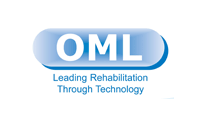
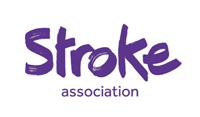




The Need
Stroke is one of the largest causes of disability: 17 million strokes occur every year worldwide, meaning one stroke every two seconds. Half of stroke survivors lose the ability to perform everyday tasks with their upper limb, which affects their independence. The cost to society in the UK is nine billion pounds per year due to health and social care, informal care, productivity loss and benefit payments. As stroke is an age-related disease, these numbers are set to increase as the population ages.
Novelty
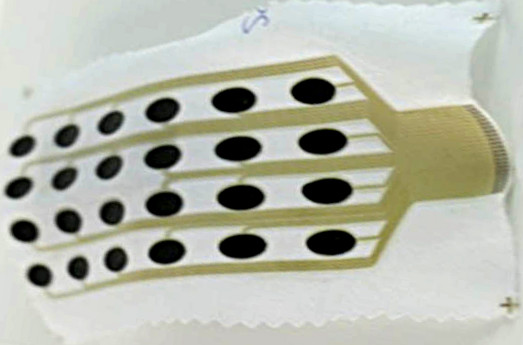
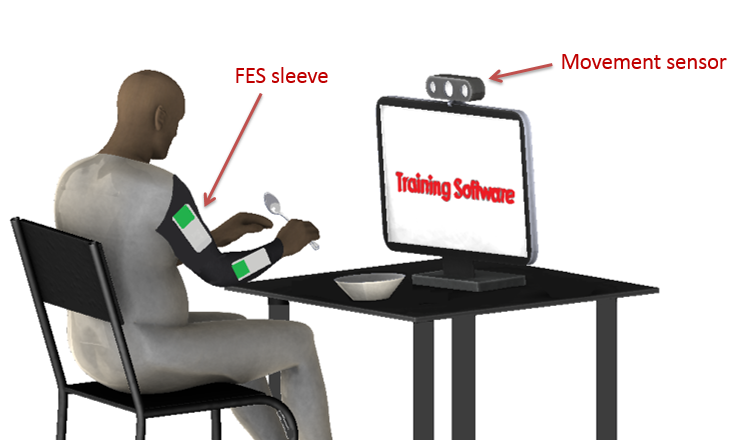
Current commercial devices using functional electrical stimulation (FES) have large electrodes that only stimulate a limited number of muscles, resulting in simple, imprecise movements and the rapid onset of fatigue. In addition, current commercial devices do not employ feedback control to account for the movement of patients, only reducing the level of precision in the resulting movements. In addition, devices are either bulky and expensive, or difficult to set-up due to trailing wires.
Our project uses bespoke screen printable pastes to print electrode arrays directly onto everyday fabrics, such as those used in clothing. The resulting garments will have cutting-edge sensor technologies integrated into them. Advanced control algorithms will then adjust the stimulation based on the patients' limb motion to enable precise functional movements, such as eating, washing or dressing.
Impact

This project will deliver a fabric-based wearable FES for home based stroke rehabilitation. The beneficiaries include:
- Persons with stroke (PwS) and other neurological conditions. Stroke survivors are the direct beneficiaries of our research. The FES clothing can be adapted to also treat hand/arm disabilities resulting from other neurological conditions such as cerebral palsy, head injury, spinal cord injury, and multiple sclerosis. The use of the wearable training system increases the intensity of rehabilitation without an increase in clinical contact time. This leads to better outcomes such as reduced impairment, greater restoration of function, improved quality of life and increased social activity.
- The NHS. FES-integrated clothing is comfortable to wear and convenient to use for rehabilitation, enabling impaired people to benefit from FES at home. It will transfer hospital based professional care to home based self-care, and therefore will reduce NHS costs by saving healthcare professionals' time and other hospital resources.
- Industry. Benefits include: bringing business to the whole supply chain; increasing the FES market demand by improving performance; benefiting other industry sectors such as rehabilitation for other neurological conditions.
- Research communities in related fields. Specifically, the fields of novel fabrication, control systems, design of medical devices, rehabilitation, smart fabrics, and remote healthcare will benefit from the highly transformative platform technology (e.g. direct write printing, fabric electrodes, iterative learning control systems) developed in this work.
What is FES?
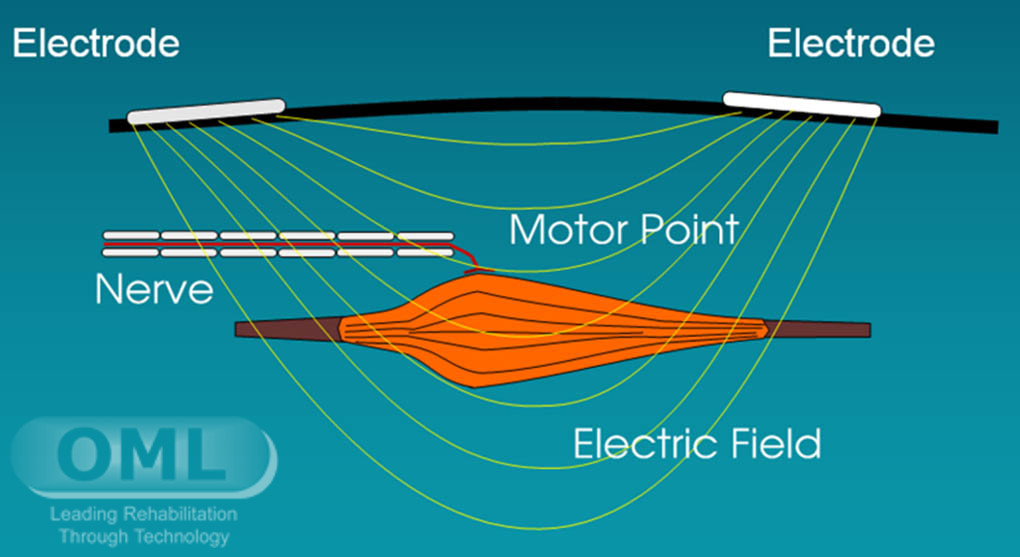
Functional electrical stimulation (FES) is a technique used to facilitate the practice of therapeutic exercises and tasks. Intensive movement practice can restore the upper limb function lost following stroke. However, stroke patients often have little or no movement, so are unable to practice. FES activates muscles artificially to facilitate task practise and improve patients’ movement.
Team
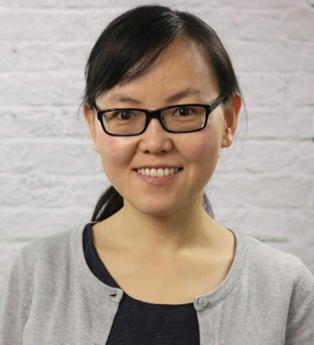
Kai Yang is a Senior Research Fellow educated in textiles and chemistry with a broad knowledge of printed electronic textiles. She is working in a multi-disciplinary field to develop wearable e-textiles. She has developed the platform technology of the printed e-textile, which can be used in many applications such as fashion, workwear and healthcare. Kai is passionate about research, commercialisation, and public engagement. She was a co-founder of the university spin-out company ‘Smart Fabric Inks Ltd’.

Chris Freeman is an Associate Professor in Electronics and Computer Science. Over the last ten years he has developed new healthcare technologies combining novel control paradigms, biomechanical models, robotics and electrical stimulation to enable people with upper limb impairments to perform functional tasks. His focus has been to understand and define clinical problems within an engineering perspective and translate this into usable solutions.

Ann-Marie Hughes is an Associate Professor in Rehabilitation Technologies in the Faculty of Health Sciences. She is passionate about using new technologies to help people recover movement caused by neurological conditions such as stroke and Multiple Sclerosis. She is a steering committee member of the International Consortium of Rehabilitation Robotics, and the International Industry Society of Advanced Rehabilitation Technologies, a grant panel member for the UK Multiple Sclerosis Society, a member of the EU Cost Action in Rehabilitation Robotics, and a reviewer for the UK Stroke Guidelines on upper limb rehabilitation robots.
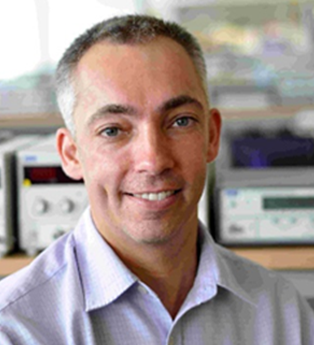
Professor Steve Beeby obtained a PhD from the University of Southampton in 1998 on the subject of MEMS mechanical sensors. His research interests include microfabrication and packaging, e-textiles, developing printable functional materials and energy harvesting and has led numerous UK and EU funded research projects. He is a co-founder of Perpetuum Ltd and leads the UK’s Energy Harvesting Network. He has given 14 invited talks, co-authored/edited 3 books and has over 200 publications and 10 patents.
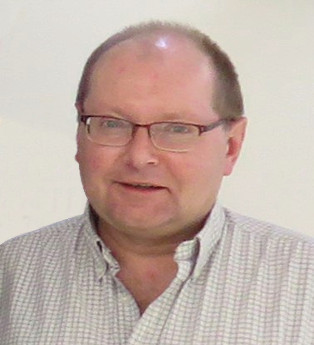
John Tudor is a Principal Research Fellow in Electronics and Computer Science. He graduated with a BSc(Eng) in Electronic and Electrical Engineering from University College London in 1983. Dr Tudor’s research interests are currently smart fabrics, printing, energy harvesting, sensors and MEMS. Dr Tudor has 175 publications and 11 patents.
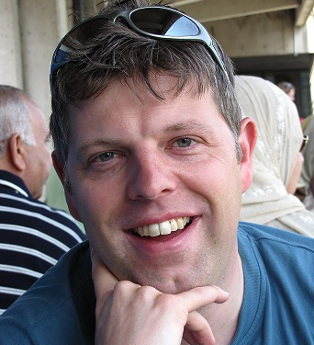
Neil Grabham is a Senior Research Fellow in the Department of Electronics and Computer Science and has over ten years experience in the design and fabrication of printed electronic materials. His current research areas include smart textiles, energy harvesting, and low power electronics design. He has worked on a range of projects requiring the translation of cutting edge technology to suit a non-technical end user and enable its uptake, covering all aspects from initial design to final realisation.
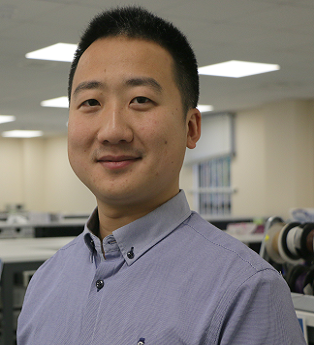
Yang Wei is a Senior Research Fellow in the Smart Electronic Materials and System Group. Since 2013, he has been involved in delivering key printed smart fabric demonstrators on two EU projects, one EPSRC project and one Innovate UK project. He has extensive experimental knowledge on 3D dispenser printing, Smart Fabric medical devices, material formulation, electronics, sensors and actuators.
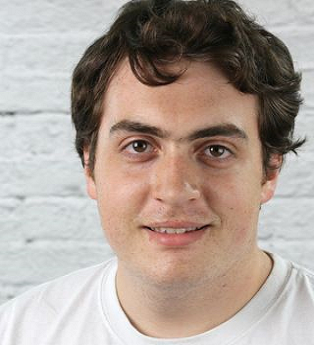
Tyler Ward Tyler Ward is a Senior Research Fellow in Electronics and Computer Science. His main areas of expertise are the design and development of electronic systems and embedded firmware. Since completing his PhD, Tyler has been working on turning research ideas into functional electronic systems..
Advisory Board
- Ian Swain, Odstock Medical Limited
- Paul Taylor, Odstock Medical Limited
- Gary Randall, Stroke Association
- Fran Brander, University College Hospitals
- Nikola Sprigg, University of Nottingham
- Ranj Parmar, Different Strokes
- Nick Ward, University College London
- Steve Crook, Odstock Medical Limited
- Russel Torah, University of Southampton
Dissemination
- Kai Yang, Katie Meadmore, Chris Freeman, Neil Grabham, Ann-Marie Hughes, Yang Wei, Russel Torah, Monika Glanc-Gostkiewicz, Steve Beeby and John Tudor, Development of User-Friendly Wearable Electronic Textiles for Healthcare Applications, Sensors, 18(8), 2410, 2018.
- K. Yang, K. Meadmore, C. Freeman, N. Grabham, AM Hughes, Y. Wei, R. Torah, M. Glanc-Gostkiewicz, S. Beeby, J. Tudor, Wearable Electronic Sleeve for Muscle Stimulation, 22nd Annual Conference of the International Functional Electrical Stimulation Society (IFESS), 29-31 August 2018, Nottwil, Switzerland.
- T. Freeman, K. L. Meadmore, A. M. Hughes, N. Grabham, J. Tudor, K. Yang, Multiple Model Adaptive ILC for Human Movement Assistance, European Control conference, 12-15 June 2018, Cyprus.
- K Meadmore, A-M Hughes, C Freeman, N Grabham, S Beeby, Y Wei, R Torah, J Tudor, K Yang, Wearable technology for arm rehabilitation post stroke, Southampton Medical and Health conference, 6-7 June, 2018, Southampton.
- K Meadmore, Developing electrical stimulation technology in clothing to help restore arm movement post-stroke, Southampton Neuroscience Group (SoNG) seminar, 2 May 2018, Southampton.
- K Meadmore and A-M Hughes Engage the public to improve awareness of everyday living difficulties in stroke survivors workshop, 18 April 2018, Southampton.
- R. Torah and J. Tudor Display of fabric FES prototypes, at The Wearable Technology Show, London, 13 - 14 March, 2018.
- R. K Meadmore, N Grabham Restoring arm movement post stroke using electrical stimulation technology in clothing, at STEM for Britain, 12 March 2018, House of Parliament, London.
- MP Mims Davies, The Eastleigh Constituency, Twitter for STEM for Britain
- MP Caroline Nokes, The Romsey and Southampton North Constituency, Twitter for STEM for Britain
- K. Meadmore, AM Hughes, K Lundrigan, M. Spraggs, C. Freeman, N. Grabham, S. Beeby, J. Tudor, K Yang, Exploring stroke patient’s expectations for upper limb motor recovery and barriers to achieving those expectations, 10th World Congress for Neurorehabilitation, 7 - 10 February, 2018, Mumbai, India.
- K Meadmore, AM Hughes, N Grabham, M Spraggs, C Freeman, S Beeby, J Tudor, K Yang, Understanding the Relationship Between Engagement in Upper Limb Activity and Expectation of Motor Recovery, Southampton Neuroscience Group Meeting, 14 September, 2017, Southampton, UK.
- Kai Yang, Neil Grabham, Chris Freeman, Matt Spraggs, Katie Meadmore, Ann-Marie Hughes, Steve Beeby, Russel Torah, John Tudor, Fabric based wearable technology for stroke upper limb rehabilitation, Polymer Process Engineering, 25 - 27 July, 2017, Bradford, UK.
- Katie Meadmore, Ann-Marie Hughes, Neil Grabham, Matt Spraggs, Chris Freeman, Steve Beeby, John Tudor and Kai Yang, Understanding the Relationship Between Engagement in Upper Limb Activity and Expectation of Motor Recovery, British Society of Rehabilitation Medicine (BSRM), RehabWeek 2017, 17 – 20 July, 2017, London, UK.
- Different Strokes Dissemination Event, May 2017.
- Kai Yang, Katie Meadmore, Ann-Marie Hughes, Neil Grabham, Matt Spraggs, Chris Freeman, Steve Beeby, Russel Torah, John Tudor, Fabric based wearable technology for stroke rehabilitation, International Functional Electrical Stimulation Society (IFESS), RehabWeek 2017, 17 – 20 July, 2017, London, UK (Accepted).
- R. Torah, J. Tudor, Display of fabric FES prototypes, Large area printed and organic electronics congress (LOPEC), 29 - 30 March, 2017.
- R. Torah, J. Tudor, Display of fabric FES prototypes, Southampton Science and Engineering Day, 18 March, 2017.
- R. Torah, J. Tudor, Display of fabric FES prototypes, The Wearable Technology Show, London, 7 - 8 March, 2017.
- R. Torah, S. Beeby, Display of fabric FES prototypes, Printed and Flexible Electronics, London, 21 - 22 February, 2017.
- R. Torah, J. Tudor, Display of fabric FES prototypes, Avantex Exhibition, Paris, 6 - 9 February, 2017.
- K. Yang, K. Meadmore, A. M. Hughes, N. Grabham, M. Spraggs, C. Freeman, S. Beeby, R. Torah, J. Tudor, Low-cost personalised instrumented clothing with integrated FES electrodes for upper limb rehabilitation, British Council Newton / NSFC Early Career Workshop on Healthcare Technologies for Aging Populations, Chengdu, China, 6 - 8 December, 2016.
- K. Yang, FES Device, Spotlight Issue 4 (Staff Newsletter), March, 2016.
